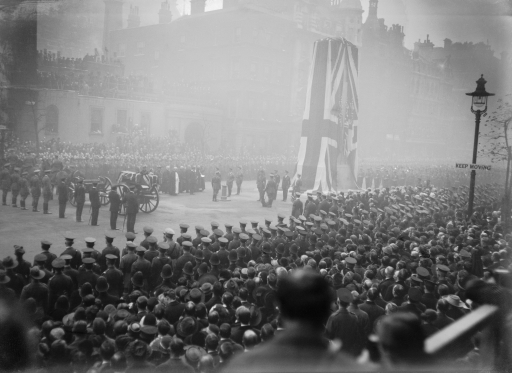Ashlee Godwin, Deputy Editor of the RUSI Journal at the Royal United Services Institute, discusses the Centenary of the First World War at a national and international level, and the role the Institute will play.
At the Royal United Services Institute (RUSI) – a defence and security think tank located in Whitehall, London – we, like many other such organisations worldwide, have been considering how best to mark the events of the First World War, one hundred years on.
Given the magnitude of the coalition government’s planned activities in the UK, as well as the seemingly comprehensive scrutiny of the First World War in the years since, many organisations such as RUSI are asking: ‘What value can we bring to this commemoration?’ Such was the pervasiveness of the war and its consequences throughout society that the answer to this question remains ‘a great deal’.
RUSI during the First World War
As the only dedicated forum in which officers of the armed forces could discuss strategy and broader military affairs at the time of the First World War, RUSI had something of a unique perspective.
Founded as the Naval and Military Museum in 1831 at the Duke of Wellington’s behest, before becoming the United Services Institution in 1839 and being granted royal patronage in 1860, the purpose of the Institute from the beginning was to establish a ‘strictly scientific and professional’ approach to the study of military affairs. By 1914, therefore, the Institute was well established as a forum of debate among officers, as was its journal, which had published on matters technical, tactical and strategic since 1857.
For much of the early years of the war, however, the Institute struggled to find its place in the national debate: the conflict’s lessons were not being discussed in its lecture hall – instead, they were being put straight into practice on the battlefield, as a recent book about RUSI’s history, Between Peace and War*, explains. The RUSI Journal ceased publishing for a few months from November 1915 for this reason. Only in 1917 did it begin to publish more revealing articles, such as two German officers’ accounts of their experiences at Jutland and the Somme. By 1918, however, the Journal had certainly regained its footing, hosting a debate on the post-war purpose and structure of the UK’s armed forces.
However, while the Institute and its journal ultimately survived the war in relatively decent health, the same could not be said of its membership: although its members numbered 4,980 in 1918, 434 were killed in action in the years 1914–19.
Adding Value Today
A century later, RUSI is finalising its plans for the commemoration of the First World War. For the editorial team behind the modern-day RUSI Journal, the publication’s archives, as well as other resources found in RUSI’s Library of Military History, offer a range of straightforward options. To go beyond this, however, will require answers to some key questions. To commemorate or to celebrate? To limit discussion to the war’s impact on the UK? And in what areas will a fresh perspective be relevant to today’s readership – or even possible?
The UK government’s focus on commemoration over celebration is criticised by many for its downplaying of British successes in favour of unnecessary political correctness. The First World War was tragic on many levels, so the argument goes, but to ignore the success of the British at Amiens in 1918 or the great strides forward in technology and medicine, for example, is to detract from the achievements, courage and sacrifice of those who fought on all sides.
The government’s critics likewise contend that, although the war’s continued relevance in today’s globalised world cannot be understood without exploring its impact beyond the UK, overlooking the concept of nationality – as per the 2005 ‘re-enactment’ of the Battle of Trafalgar between a red and a blue team and the national interests for which the war was fought serves only to neuter the lessons that can be drawn from its study.
To these thorny issues is added that of originality, an important consideration for any publication. As the RUSI Journal’s Editor, Dr Emma De Angelis, explains: ‘So much has been said on the First World War that there appears to be little room for originality. Yet, although the conflict has now passed out of living memory, it remains threaded throughout the fabric of society in the UK, Europe and the Commonwealth, and it is this aspect – the perceptions and presentations of the war from 1914 to today – which means that the First World War remains a living subject, worthy of ongoing study and popular interest today.’
To visit the Royal United Services Institute website, click here.
* More details about the book Between Peace and War can be found here.
© Centenary Digital Ltd & Author
